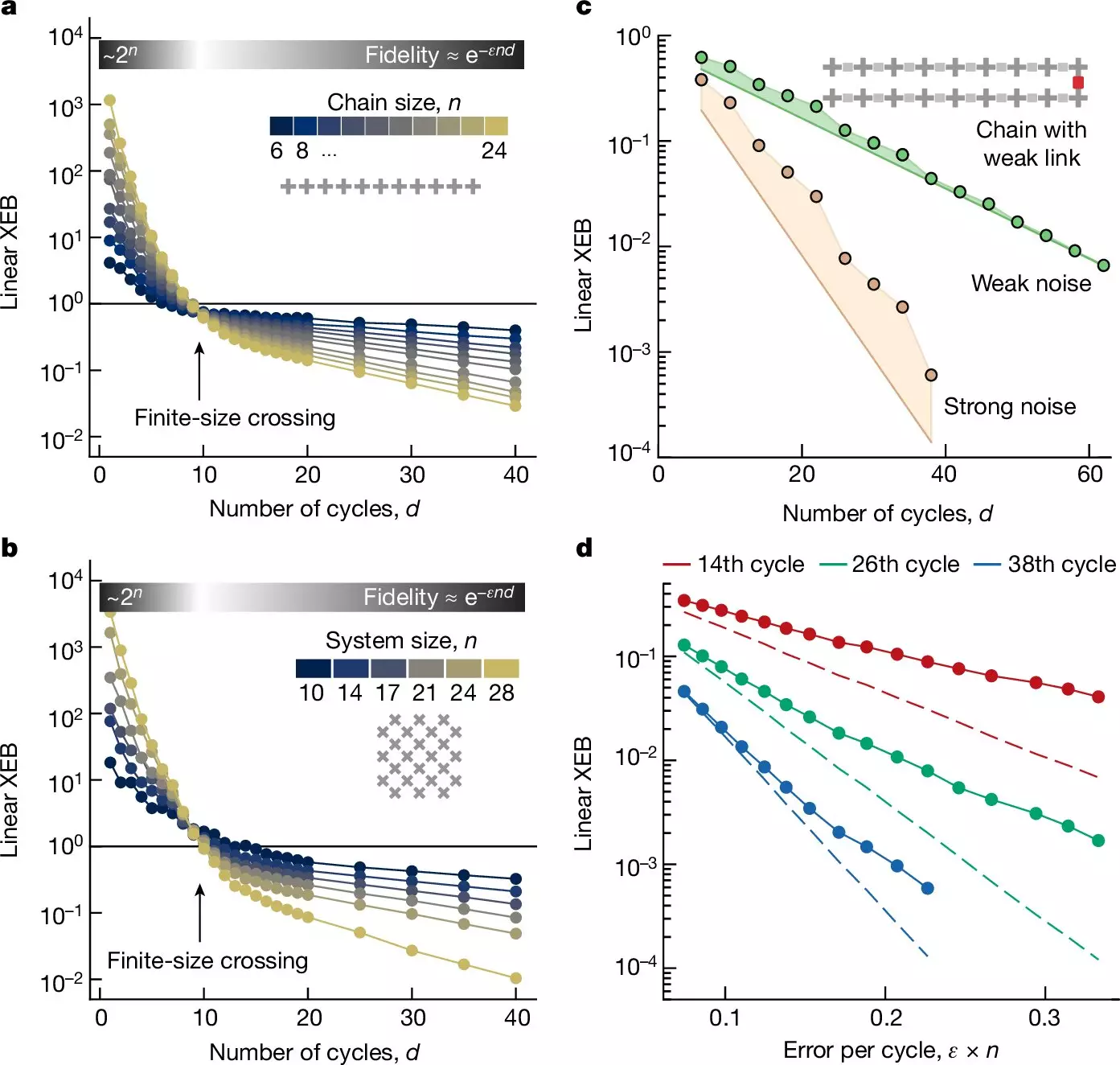Quantum computing has emerged as a revolutionary field with the potential to solve complex problems beyond the scope of traditional computers. However, the path to realizing this technology’s promise has been fraught with challenges, particularly due to the detrimental effects of environmental noise. Researchers have long grappled with noise interference, which stems from various sources such as temperature fluctuations, electromagnetic interference, and even cosmic radiation. This noise can lead to significant errors in quantum computations, impeding the performance of quantum processors. Thus, achieving a level of control over this noise is paramount for advancing quantum technology.
A recent study from a collaborative team at Google Research has honed in on this crucial aspect by demonstrating that minimizing noise in quantum systems can dramatically enhance computational capabilities. In their groundbreaking work, the team explored the operation of the Sycamore quantum chip, particularly its performance in random circuit sampling (RCS). By meticulously fine-tuning the conditions around the chip’s operation, they found the sweet spot where noise interference was significantly reduced, allowing the chip to outperform classical computers in specific tasks.
This research reflects the concerted efforts of scientists to create a practical quantum computer—an endeavor that has persisted for decades. Although previous attempts have yielded mixed results, Google’s innovative approach signals a pivotal moment in the journey towards achieving quantum advantage. Their findings were documented in a prestigious publication, Nature, underscoring the significance of this advancement in the scientific community.
Demonstrating Quantum Advantage
The study revealed that the Sycamore chip could achieve a remarkable decrease in its error rate. The researchers documented improvements from an impressive 99.4% accuracy rate to an even more remarkable 99.7%. Such enhancements, though seemingly small in percentage terms, resulted in substantial qualitative changes in performance. This breakthrough is particularly important as it aligns with the ultimate goal of quantum computing: executing algorithms which would otherwise require impossible amounts of time on classical supercomputers.
One of the standout features of Google’s work is the focus on RCS, an algorithm that exemplifies the capabilities of quantum systems by generating sequences of random numbers. While the algorithm itself is simple, its implementation provides a robust framework for testing the limits of quantum processors in comparison to classical systems, serving as a valuable benchmark for progress in the field.
As researchers continue to address the challenges posed by noise, the implications of such findings could herald a new era in quantum computing. Eliminating or reducing environmental disturbances not only enhances the accuracy of current systems but also paves the way for future innovations. As the gap between theoretical potential and practical application narrows, we edge closer to a world where quantum computers can tackle complex problems previously thought insurmountable.
The work done by Google’s engineers and scientists marks a significant stride forward. It reflects a growing understanding of the intricate dynamics at play within quantum systems and offers a hopeful glimpse into the future of computing technology. With continued research and development, we may soon witness the emergence of a new generation of computing capabilities that could transform industries, scientific research, and everyday life.


Leave a Reply